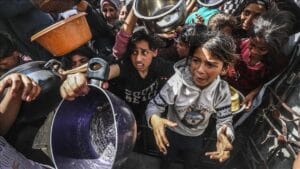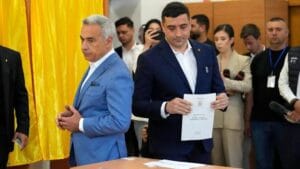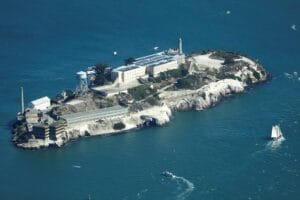President Masoud Pezeshkian heads to Iraq on first foreign trip
Iran’s newly elected President Masoud Pezeshkian embarked on his first official foreign visit to Iraq, underscoring the importance of regional alliances amid mounting Western sanctions on Tehran.

Iran’s newly elected President Masoud Pezeshkian embarked on his first official foreign visit to Iraq, underscoring the importance of regional alliances amid mounting Western sanctions on Tehran. The visit, aimed at deepening economic and political cooperation, highlights Iran’s strategy to bolster ties with neighboring nations in the face of increasing international pressure.
The three-day trip, which commenced on Wednesday, began with Pezeshkian’s meeting with Iraqi Prime Minister Shia al-Sudani. Both leaders are expected to sign a series of agreements covering trade, agriculture, and communications. Among the critical topics for discussion are the ongoing Gaza war and regional tensions, where Iran’s influence, particularly through its backing of armed groups, has played a significant role.
“Iran needs the Iraqi market for its exports, just as it needs Iraq’s energy imports,” noted Iraqi political scientist Ali al-Baidar, emphasizing the mutual economic reliance between the two neighbors. Currently, trade between Iran and Iraq exceeds $5 billion in non-oil sectors over the past five months.
President Pezeshkian also paid tribute to Qassem Soleimani, the slain commander of Iran’s elite Quds Force, at a Baghdad monument. Soleimani was killed in a U.S. drone strike in 2020, an event that deepened tensions between the U.S. and Iran. The gesture not only underscored the symbolic importance of Soleimani’s legacy in Iran’s regional policies but also highlighted Iraq’s role as a battleground for U.S.-Iranian power struggles.
High on the agenda for Pezeshkian’s discussions is the conflict in Gaza, where Iran’s role in backing armed groups against Israel has come into sharp focus. This war, which has drawn in militias from across the Middle East, threatens to further destabilize the region and complicates Iraq’s delicate balance of maintaining ties with both Tehran and Washington.
During Pezeshkian’s visit, the two countries are expected to sign approximately 15 new agreements, according to Iranian Foreign Minister Abbas Araghchi. These accords, which include security and political cooperation, aim to reinforce Iran’s economic and political footprint in Iraq, helping to counter the impact of U.S.-led sanctions. Iran remains one of Iraq’s primary trade partners and continues to supply significant volumes of gas under a U.S. sanctions waiver.
Pezeshkian’s visit to Iraq also holds strategic importance as Tehran works to sustain its influence in Baghdad while maneuvering through the complex web of Iraq’s relations with the U.S., which still has a military presence in the country.
However, the diplomatic visit was not without incident. Hours before Pezeshkian’s arrival, a blast rocked a base at Baghdad’s airport, which hosts U.S. forces. The U.S. Embassy in Iraq confirmed that a diplomatic facility had been targeted, though no casualties were reported. A spokesperson for the Iranian-backed Hezbollah group in Iraq claimed responsibility for the attack, suggesting it aimed to disrupt Pezeshkian’s visit.
As Pezeshkian continues his diplomatic efforts, he faces increasing challenges at home, including fresh sanctions from the U.S. and European countries accusing Iran of supplying missiles to Russia. Despite these external pressures, Pezeshkian has appointed Mohammad Javad Zarif, the chief negotiator of the 2015 nuclear deal, as his vice president for strategic affairs, signaling a potential push for renewed diplomacy and an attempt to navigate Iran through its growing isolation.










